The Most Radical Drug Court Judge in America
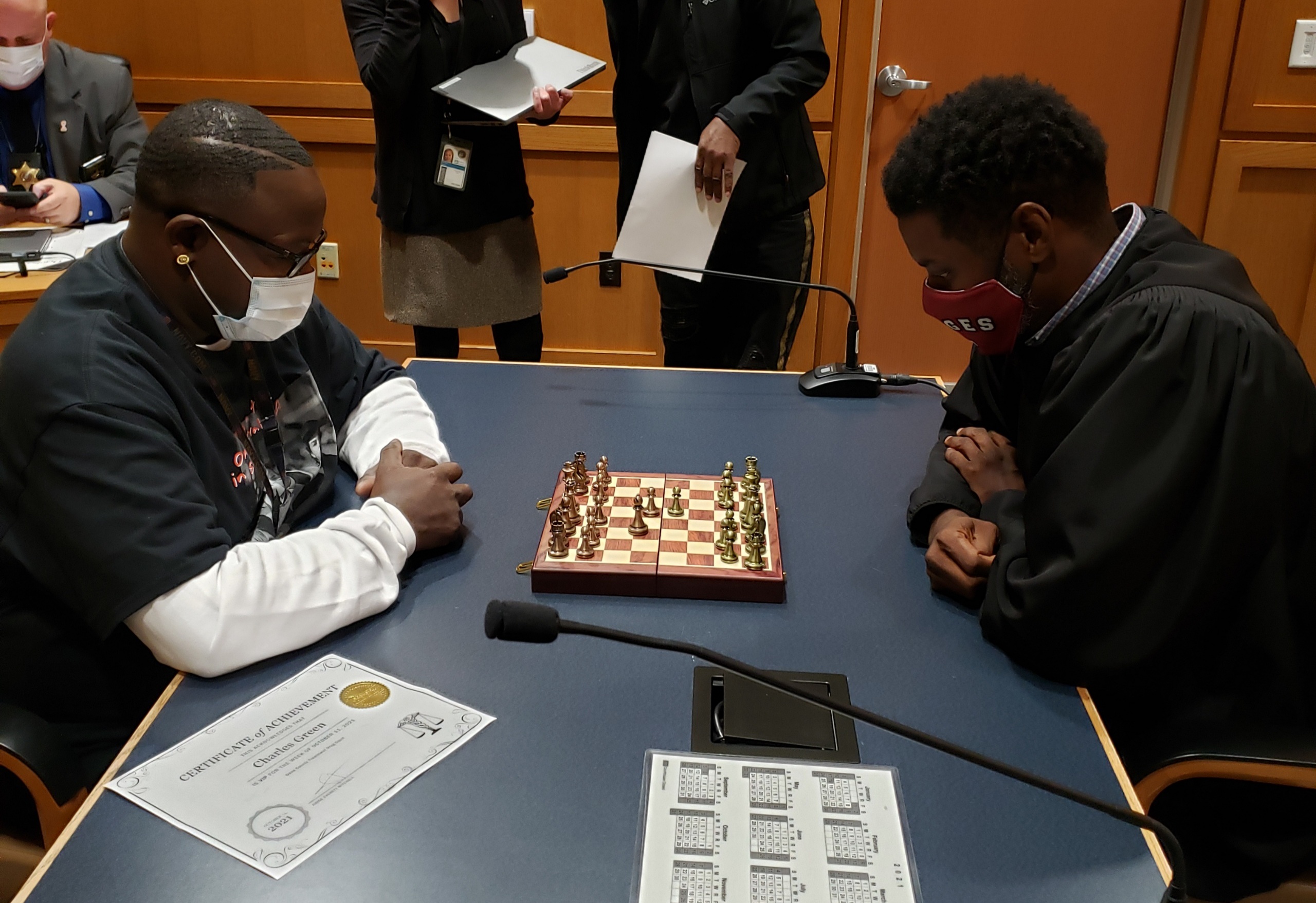
Every Thursday, inside the courthouse tucked in a quiet corner of downtown Madison, Wisconsin, alongside condo and local government buildings, one by one, participants in Dane County’s high-risk drug court program lean toward the slender microphone jutting out from the podium in Judge Everett Mitchell’s courtroom to offer an update on their recovery progress.
Last year, during the weekly check-in, one participant, whom Mitchell calls Mr. Green, mentioned he’d been a junior chess champion when he was younger.
More from Spin:
- World’s First Comprehensive Punk Museum to Open in Vegas
- Watch Willow Perform ‘Curious/Furious’ and ‘Ur a Stranger’ on SNL
- Watch Eddie Vedder Cover the Cure’s ‘Just Like Heaven’ With Solo Band
That information wasn’t in any of Green’s court paperwork; Mitchell had no idea he was even interested in the game. He told Green if he remained sober, as an incentive, they could schedule a match.
Several months later, Green and the judge sat across a chess board in Mitchell’s courtroom and ultimately played twice.
A photo that appeared alongside a local publication’s article about the match shows the two men—Green in a T-shirt, Mitchell in his robe, both wearing masks—staring intently at the board. Victory was swift.
“He beat me twice,” Mitchell says, laughing, “in like 20 minutes.”
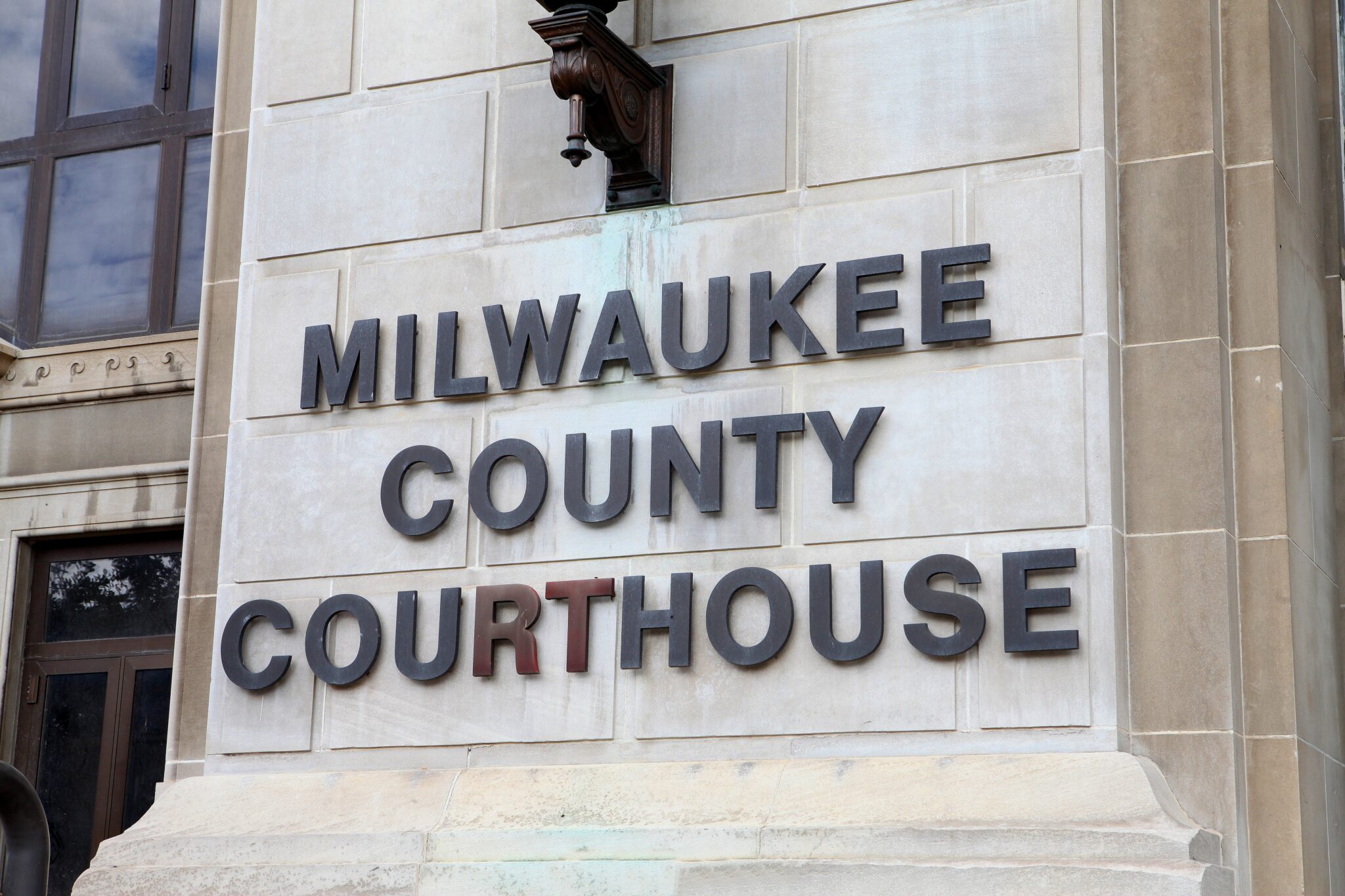
While the Thursday morning conversations he has with drug court participants touch on program specifics, Mitchell tends to pepper the interactions with questions about their personal lives—where they’re living at the moment, how someone’s tattoo business is doing, if a participant’s late work schedule is making it hard to get home at night.
His reactions to their responses are quick and compassionate. He offers to write a letter to support an apartment application. He announces he’s going to give one participant some love because his drug test was negative, and other program members perched on benches in the back of the wood-paneled courtroom enthusiastically clap. When a young man mentions he was let go after his employer found out he had a record, Mitchell softly says, “I’m sorry that happened to you.”
He sometimes cracks jokes. Occasionally, he swears.
“You can’t make this shit up,” Mitchell says, shaking his head and chuckling, after one program participant mentions his mother, who recently had major surgery, has already resumed regular trips to a casino.
“This judge remembers absolutely everything,” says Probation and Parole Agent Marc Peterson. “What they talk about, what they care about, the names of their kids, the name of the dog.”
Mitchell frequently brings up those details when speaking with program participants, part of his ongoing effort to recognize them as individuals, instead of defendants—a term he won’t use in or outside of court.
“These people have names,” he says. “If you lose that understanding, you will always find yourself treating people as their facts, and not human beings. They may have committed a crime, but in this moment, we’re going to choose to see them differently.”
Dane County’s drug court program takes a notably holistic approach to addressing addiction-related crime—combining some of the more standard judicial system elements, like regular drug tests, with extensive support-based components.
Provided a person meets specific qualifications—the crime you’re charged with can’t be violent, for instance—a participant, in addition to potentially avoiding a prison sentence, receives access to counseling, medically assisted treatment options and other resources.
Case managers, for example, may identify a way a program participant can enter treatment faster by changing insurance providers; or connect the individual with an organization that will help fund the first month of rent for an apartment.
In general, the program’s five phases focus on stabilizing participants and encouraging them to engage in social and support-based activities, according to Alternative Sanctions program coordinator Brittney Pederson.
“We’ve learned that that drug treatment is not mental health treatment; you need both,” Mitchell says. “By the time you are in drug court, you need to do a diagnosis, because your mental health has been compromised by the use of these drugs. This may be their first or second criminal charge; they lost their kids, housing. They can’t find jobs. They’re having to deal with all of the barriers that come with having to deal with this disease.”
Specific steps—such as passing a consecutive number of urine analysis tests—are required to advance to each subsequent program phase. “Roughly one year to 18 months is the minimum time you could be in this program,” Pederson says. “Obviously, with a lot of violations and setbacks of positive drug tests, it will continue.”
Those infractions won’t, however, automatically land a participant behind bars—as they might in some other court scenarios.
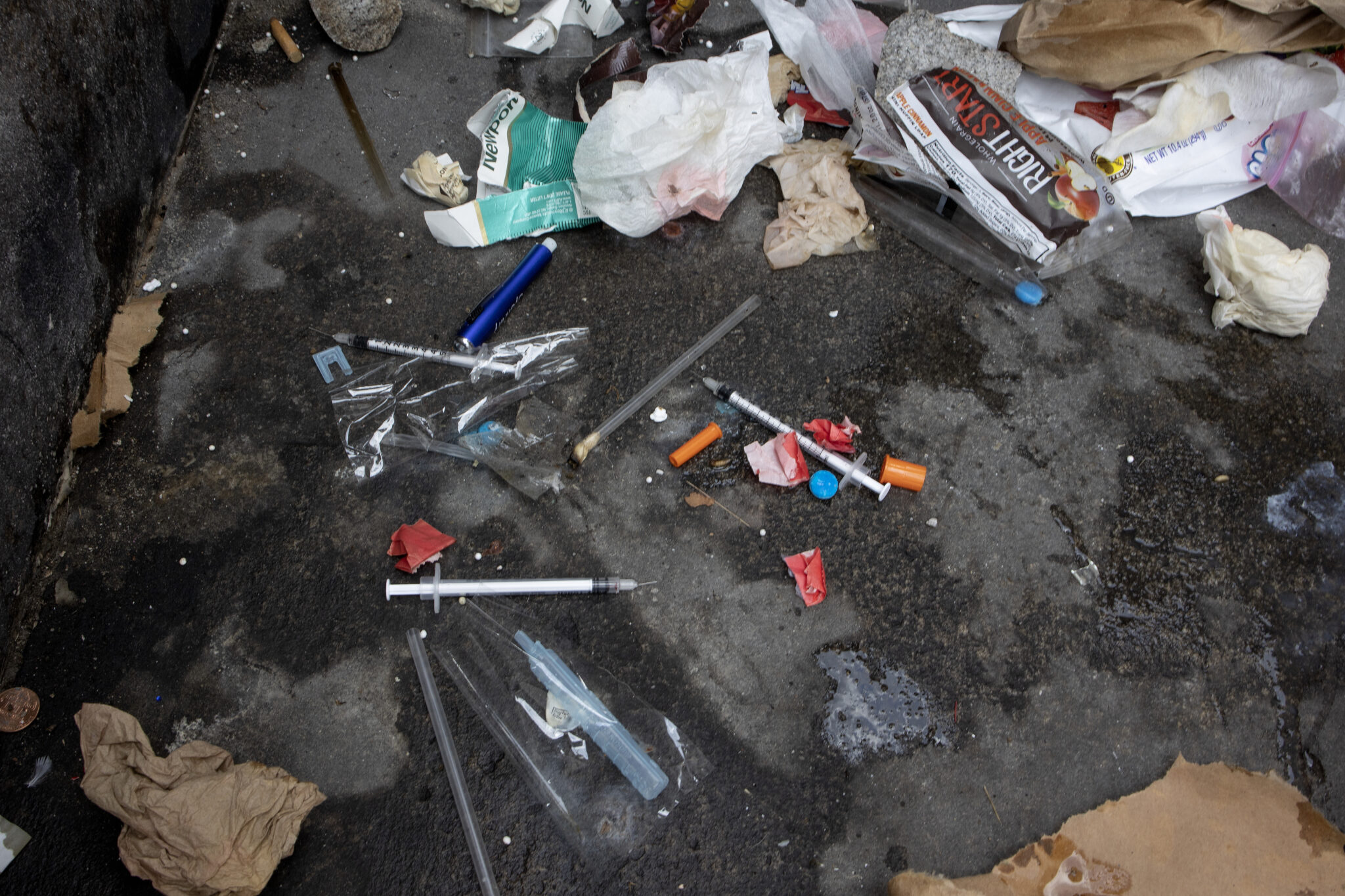
Currently, one in five incarcerated individuals are in jail for a probation or parole violation, according to a report from the nonprofit, nonpartisan Prison Policy Initiative research organization.
A number of the program participants who step in front of Mitchell each week have tested positive for substance use; some bring it up before Mitchell does.
“I’m not trying to treat drug court like, ‘Oh, I got you; gotcha!’” he says. “We’re not going to punish you for being honest. In some courts, you smoked weed; you went to jail.”
In recent decades, on the federal, local and state level, the outcome of drug-related charges has often skewed toward jail time. Spurred in part by the passage of the Anti-Drug Abuse Act of 1986, which established mandatory minimum prison sentences for certain drug convictions, from 1994 to 2013, the number of incarcerated individuals with a drug offense conviction more than doubled, according to a congressional report.
Today, the amount of inmates who are incarcerated because of drug offenses far surpasses all other categories, comprising 45% of the prison population, according to the Federal Bureau of Prisons.
Drug offenders’ sentences now tend to be significantly longer—62 months on average, a Sentencing Project analysis suggests, compared to 22 months in 1986. Research also found drug offense-related incarceration has affected certain minority groups disproportionately. In the year 2013, for instance, more than 75 percent of all drug offenders in federal prison were Black and Hispanic defendants.
The high-risk drug court program in Dane County was founded decades ago in 1996, in response, Mitchell says, to the ongoing drug crisis—along with a growing realization that addiction is a disease, and locking people up for it isn’t necessarily the gateway to having safe communities.
“They’re figuring out more offenses are drug-driven,” he says. “Fifteen, 10 years ago, we just didn’t pick up on it. The system is asking why—which is not a question they ever asked.”
Data suggest there’s a distinct connection between addiction and crime. According to the National Institute on Drug Abuse, 85 percent of the prison population have an active substance abuse issue or were under the influence of alcohol or drugs at the time they committed a crime.
Adequate treatment to address inmates’ addiction-related needs, however, isn’t always available, according to the Prison Policy Initiative—and the outcome can be grim. The number of new inmates who died of drug and alcohol intoxication while incarcerated reached record highs in 2018. Since 2000, it’s risen 381 percent.
For the most part, Mitchell says, courts haven’t historically been set up to provide the kind of personalized interaction Dane County’s program involves.
“You may be sentenced to probation, prison; but the detailed follow-up that you need to make sure the addiction is not leaking over into your criminal life, and therefore putting you more at risk—the adult criminal justice system [isn’t] really designed for that,” Mitchell says. “There’s an iceberg that’s sitting up underneath these human beings. We see just a tip, but yet there’s such depth that we have to spend time with dealing with the issue.”
Drug treatment, for instance, Peterson says, doesn’t always take the elements that may have contributed to someone’s addiction into account.
“We have to start looking at their grief or family growing up, or their situation right now,” he says. “A lot of people use drugs for different reasons. Some steroids are for pain management; some were addicted as kids because that’s what their parents did. Some people keep losing people. Nobody’s digging deep enough into to what’s going on initially.”
Mitchell has an authoritative presence—he strides briskly into rooms, sits upright without a hint of slouching, turns toward the person he’s speaking to and rarely breaks eye contact. His wardrobe includes familiar looks for a tall, handsome and charismatic public figure: neatly tailored suits and crisp button-up shirts.
His overall demeanor, though, is more friendly and relaxed than people might expect. Mitchell weaves humor into stories he tells—lowering his voice and jokingly saying, for instance, he felt like he should hold a seance and cleanse the area around one program participant with smoke after the man faced a series of frustrating incidents.
While Mitchell is often focused on mining nuggets of information about drug court participants in conversation, he also readily shares information about his past experiences—which weren’t all positive. He originally planned to be a math teacher, not a lawyer, although he struggled after enrolling at Jarvis Christian College in Texas. School hadn’t always been a priority during his childhood, due to trauma he was experiencing at home, which Mitchell says set him back academically—until two instructors at the college offered to work with him to improve his literacy skills.
“I really couldn’t read,” Mitchell says. “I was functionally illiterate growing up. That was the first time I could just sit down and be taught.”
Years later, after transferring and graduating from Morehouse College in Atlanta with degrees in mathematics and religion, when Mitchell was working toward master of divinity and theology degrees at the Princeton Theological Seminary, memories of the trauma he’d experienced as a child unexpectedly resurfaced, prompting him, he says, to look for a way to meter the related feelings.
“I was a victim of sexual abuse as a child, and I grew up trying to manage all of those emotions,” he says. “I was blessed that my mind locked away my memories for a long time, until I was in seminary. Once the pain erupts, you’re trying to do whatever you can to numb that pain. Alcohol was with my vice; I was drunk a lot. I had some years in which that’s all I did, because I just couldn’t deal with the pain; it was too much.”
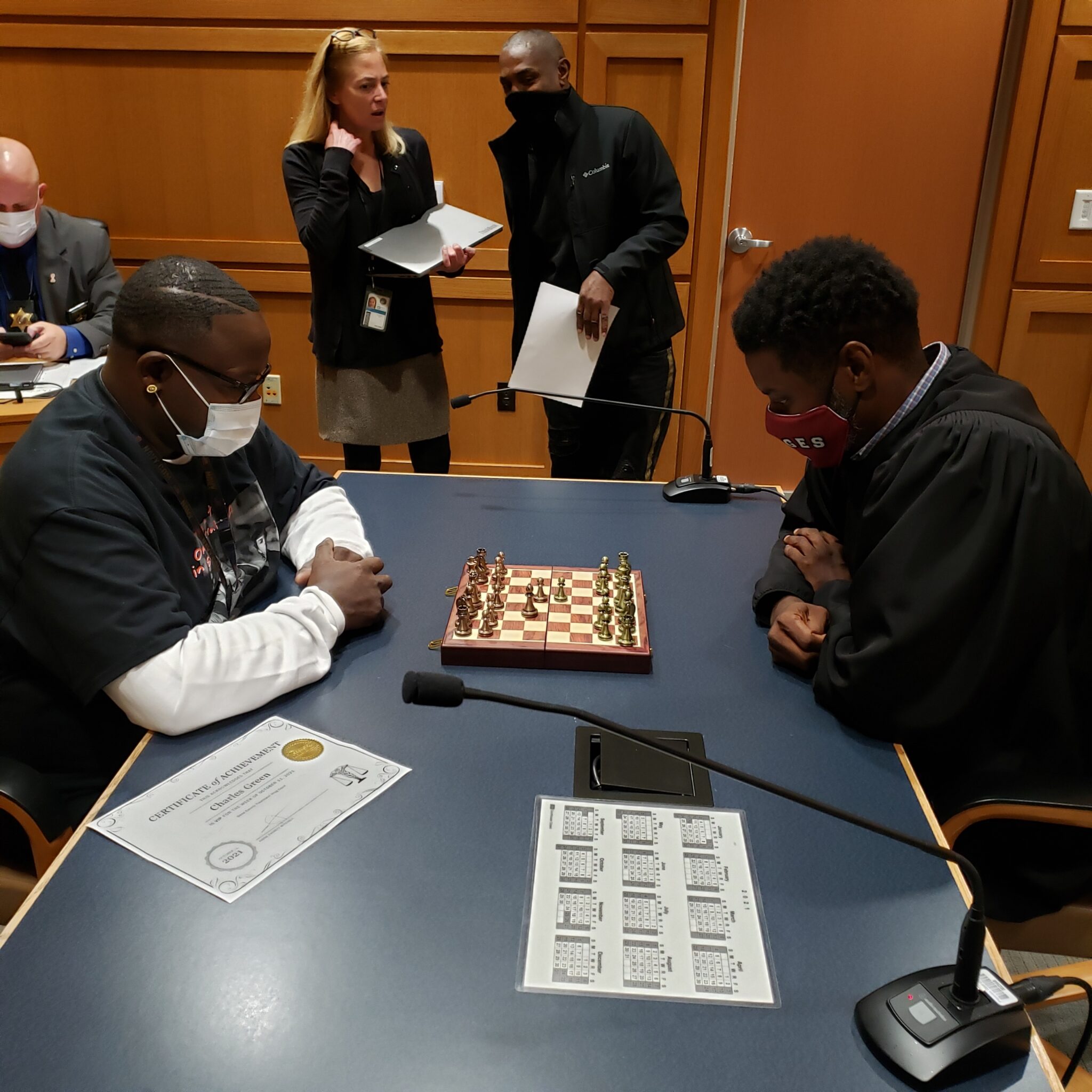
Working closely with individuals who were struggling with addiction after moving to Madison and being hired by a nonprofit, the Madison-area Urban Ministry, offering service programs for individuals and families involved in the criminal justice system inspired Mitchell to enroll in the University of Wisconsin-Madison’s law school and become a public prosecutor.
“The law piece didn’t come until after I’d worked for about three years,” he says. “I lost all three of my favorite clients to overdoses because they wanted treatment; they wanted services. They had families, you know; they had dreams. But that disease was no joke. To lose all three of them—those were big blows.”
Having been an assistant district attorney, his interest in becoming a judge several years later stemmed from a similar desire to invoke systemic change.
“We have a diverse community, but there were no Black male or female judges at the time—it didn’t make the system seem like it could be fair,” he says. “And when I represented people as a defender, I would see how they would be treated by judges; and I didn’t like how they were treated. We really do need to have some diversity—and that’s not just diversity of skin color, but diversity of experience—people who’ve experienced homelessness, trauma and all the things that I had lived through; you need those kinds of experiences on the bench. Because it makes a difference in what you do and how you act.”
Mitchell, who began overseeing drug court in 2019, wasn’t yet involved with the program when, roughly two months after he was elected as a Dane County circuit court judge in April 2016, his mother, who’d been living in Texas, running a business and in good health, became addicted to the opiates she’d been prescribed after a brutal reaction to a brown recluse spider bite.
“It ate her legs up,” he says, wincing. “Ate the tissue all the way down to the bone. So she was in pain all the time. All they wanted was to keep pumping her up with these opiates, so my mama got hooked on opiates—and this is a woman who doesn’t even drink.”
Medical providers told him she’d need significant care. Mitchell was stunned.
“They said to me, ‘She is going to have dementia. She’s not going to be able to live on her own. She doesn’t remember who she is,’” he says. “This woman just five months ago was living independently, cooking her own food, driving herself.”
Mitchell moved his mother to Madison, into his basement, for what he thought would be a couple of months of transitioning her to CBD creams, which they found effectively addressed the pain. Her opiate recovery took three and a half years.
“She’s back to herself, but it literally changed her brain chemistry,” he says. “She got better, but man, it took a long time.”
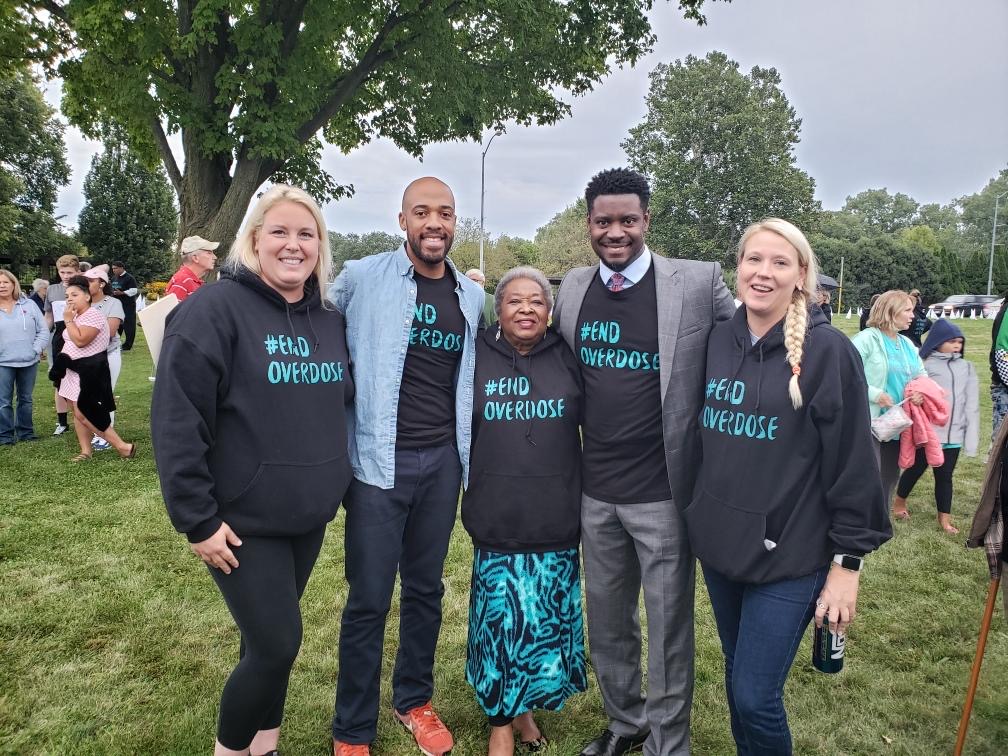
Most of the people who are now coming into the high-risk drug court program are struggling with opiate use, Mitchell says—a drug that he feels has changed the face of addiction.
“It isn’t just poor urban people; it’s reality that it’s an impact on all of our communities, at the same time,” he says. “And everybody feels that hurt. It was a drug sent to everyday people.”
Despite opioids’ widespread impact, the general public, Mitchell says, is still somewhat unclear about what addiction means, what it looks like and why personal responsibility alone isn’t enough to address it.
“It’s still the other narrative that has been embedded in people’s heads that’s dominant: ‘Well, why don’t they just make a different choice?’” he says. “Those who have been impacted understand it.”
Mitchell has—and certainly does. He’s openly discussed his history with program participants at times, which Pederson says has been well-received.
“That’s huge to see,” she says. “It’s an eye-opener for any participant to be like, ‘You know what, he changed; we could change.’ He really is able to give them that motivation.”
The judge, she says, also tries to keep participants engaged in other ways, including issuing them community service hours in lieu of jail time for missed urine analysis tests, and focusing on what aspects of their program are going well.
“Sometimes if they’re doing everything else right but they still have a positive test, he’ll give them a sticker or a certificate, or just verbal praise,” she says. “That amps some people up.”
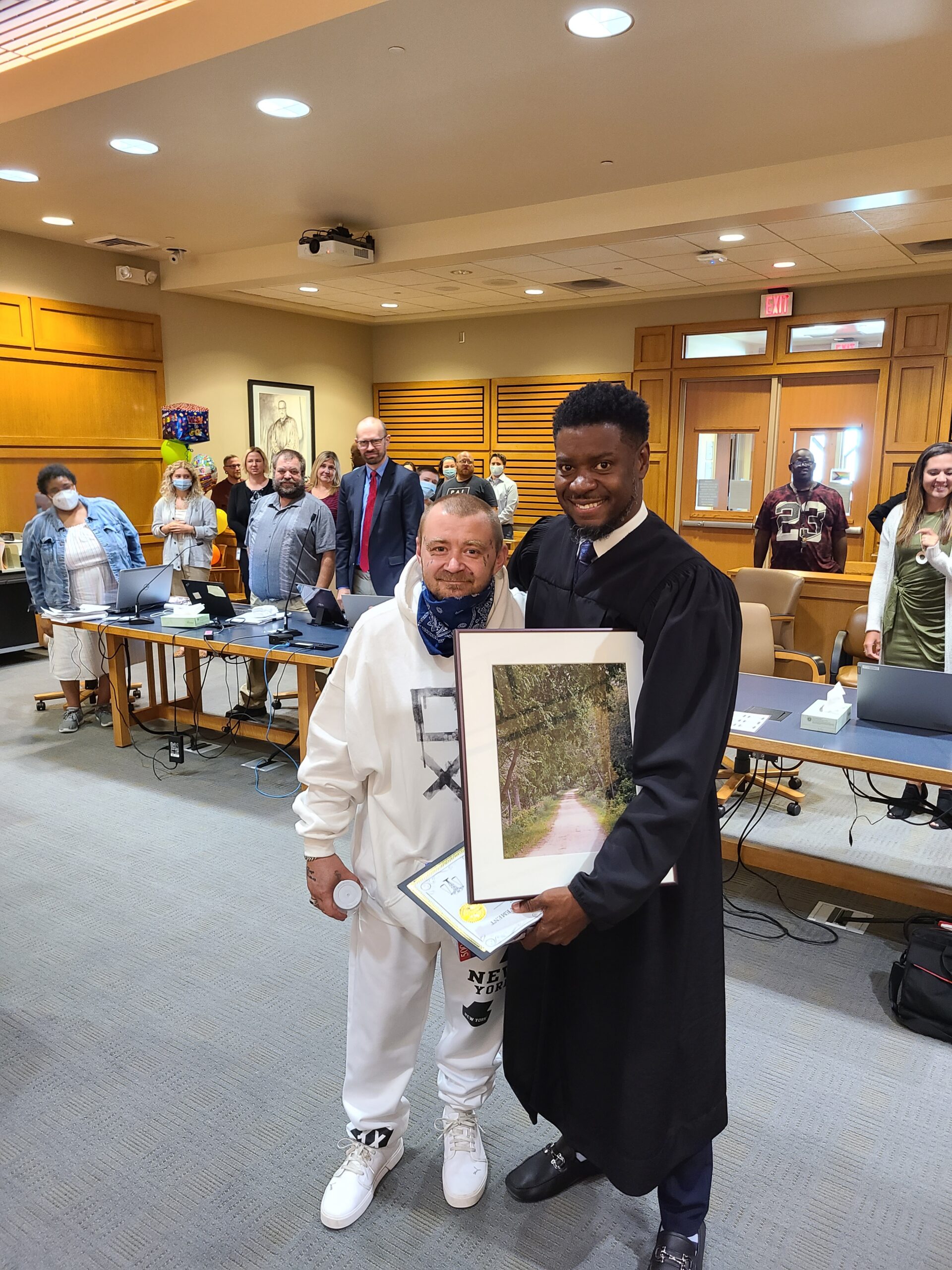
The day after a recent Thursday morning drug court session, sitting in a coffee shop in downtown Madison, Mitchell says the chess game he played with Green is an example of why the weekly exchanges are more than just a chance to go over program participants’ drug test results.“It turned into this whole thing where a part of him that nobody even knew existed came out,” Mitchell says. “That’s why I try to pull different things from different people—because probably for most our participants, nobody’s really paid attention to who they are. This is a way for somebody to look at them and say, ‘I see you. You’re not invisible. You matter. So let’s not try to hustle each other; let’s figure this out. Because at the end of the day, we want you to be successful.’”
Mid-sentence, as Mitchell is describing a chess set he gave Green to use when he teaches the game to kids at a local barbershop, a man sitting at a nearby table leans over to say he overheard part of the conversation and was wondering if Mitchell plays chess. Mitchell hesitates; it’s unclear if he’s wary or deep in thought.
“Yeah,” he responds, after a pause. The man at the next table, it turns out, loves chess but has had a hard time finding anyone to play with in the area. He asks Mitchell if he’d be interested, scribbles his phone number on a scrap of paper and hands it to him.
In addition to working full-time as a judge, Mitchell serves as a senior pastor at a local Baptist church. His days are generally packed—the coffeeshop stop, for instance, is wedged between a state bar association presentation he gave earlier that morning and a lunch meeting he needs to leave for in a few minutes.
Glancing at the man’s contact information, though, Mitchell seems excited. A chess match could offer Mr. Green a chance to showcase his skills.
After briefly discussing potential neighborhoods to meet in, the man suggests he and Mitchell text to follow up about plans.
“Alright,” Mitchell says cheerily, and grins. “I’m gonna get my man—he’s the expert. I have a friend—he’s, like, a junior chess champion. Both of us are going to come try to do this together.”
To see our running list of the top 100 greatest rock stars of all time, click here.
The post Watch Eddie Vedder Cover the Cure’s ‘Just Like Heaven’ With Solo Band appeared first on SPIN.
